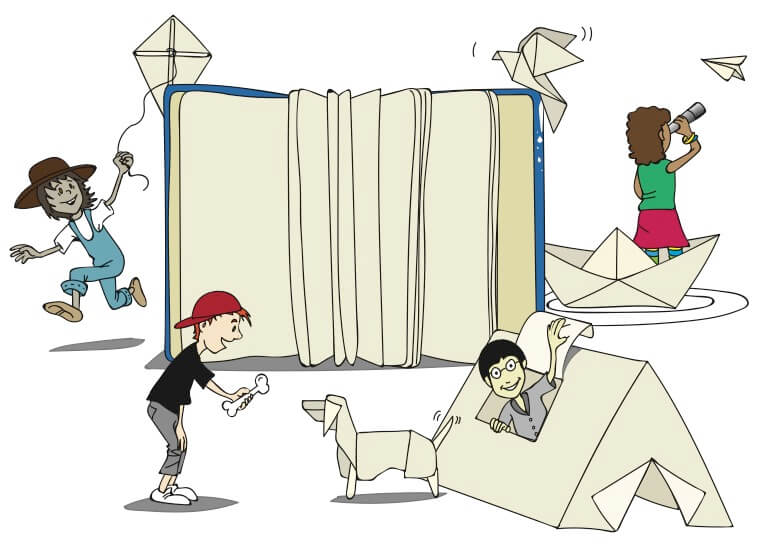ABC of INQUIRY – ENGAGEMENT
ABC of INQUIRY – ENGAGEMENT “I think the big mistake in schools is trying to teach children anything by using fear as the basic motivation. Fear of getting failing grades, fear of not staying with your class, etc. Interest can produce learning on a scale compared to fear as a nuclear explosion to a fire cracker” Stanley Kubrick
ENGAGEMENT: Lets get involved…
Being engaged, involves being connected, being curious and being committed. Engagement is different to just doing something. Just because a learner can focus and complete a task does not mean they are engaged in the learning. An engaged learner will ask questions, test ideas and try and find connections or uses for the learning beyond the walls of the classroom.
Supporting engaged learners means finding ways for them to bring forward and connect to prior knowledge and see a relevance to the learning in their own life. Showing your own passion or interest, sharing in the learner’s curiosity and interests and finding ways to link these with new learning will create an environment that encourages engagement with both problems and possibilities.
Agency is a critical factor in supporting and developing engagement with learning. Learning and teaching can have three faces
- Learning that is ‘doing for…’This involves experts providing the purpose, defined steps are laid out and the learner is seen as robotic, and may come to perceive themselves as limited in independent competence.
- Learning that is ‘doing to…’This involves predominantly deductive teaching. There is little or no learner agency and the expert positioning of the teacher leaves little room for connections to a learner’s interests, real world relevance and curiosity.
- Learning that is ‘doing with…’This involves the learner and mentor working together towards a shared goal, but appreciative and valuing of the difference each brings to the process and way it is informed. It doesn’t mean accepting or the providing of constant ‘praise’. It involve critical analysis and reflection in order to refine and develop new understandings by extending prior knowledge
The WHO, WHAT and HOW of ENGAGEMENT
In learning communities where there is a high level of engagement, the need to micromanage is greatly reduced, however it will mean that teachers and learners have to be prepared to adapt, revise and differentiate.
Here are some ideas to help support or explore ways of increasing levels of engagement in your class
- WHO – Understanding your learners
- What perspectives or attitudes do they have about a topic? What informed these? Have you asked how these ideas, perspectives or attitudes might be informing their choices with this learning?
- What fears, hopes and identity claims are helping, hindering or hiding connections the learners might see therelevance of this learning?
- WHAT – Prior knowledge and interests
- Share technical vocabulary, images, artefacts or other sources that might activate prior knowledge
- Allow time and space for learners to develop a relationship with the topic to discover or connect it with their interests or relevance to their life outside the classroom
- Provide interesting (but safe, physically, emotionally, socially, etc.) provocations to invite engagement
- HOW-Allow for challenges
- Value and give room for learners to share frustrations and challenges to the inquiry topic. You may just discover in this process hidden gems of what is not being said, seen or felt, that provide new ways of seeing the topic and finding levels of engagement
- Encourage students with an interest and engagement to share their passion, you may find that coming from a peer rather than a teacher, new ‘interest’ doors are opened
Hidden Power
Sometimes as learners and teachers we just have to get certain things covered off or done. It is great if we can find a connection that encourages engagement, however there will be times where this is not going to happen. Don’t try and cajole or trick students or yourself into doing something, this is not engagement and can support ‘madness-making’ ideas about self as a learner. Acknowledge frustrations of the need to do a certain something, making visible the constraints and non-negotiable elements that are present and then try and find ways to support one another as you negotiate this space or topic. Leave the door open for curiosity to creep in or explore what the ‘lack of engagement’ speaks to. What is it that you or the learner hold as important that this topic might be trying to take from you? How can you find ways to hold onto what is valuable and important while completing this topic?
BCW will now use ‘They — themself’ as a singular, gender-neutral pronoun in all subsequent material generated on our website.
All Rights Reserved © 2018 Beconwiz All ideas and illustrations are the property of BeConWiz.

BeConWiz Ideas and Thoughts by Carla Holmes, Mary-Denese Holmes, Pearl Holmes is licensed under a Creative Commons Attribution-NonCommercial-NoDerivatives 4.0 International License.
Based on a work at https://beconwiz.com.
Permissions beyond the scope of this license may be available at https://beconwiz.com.

